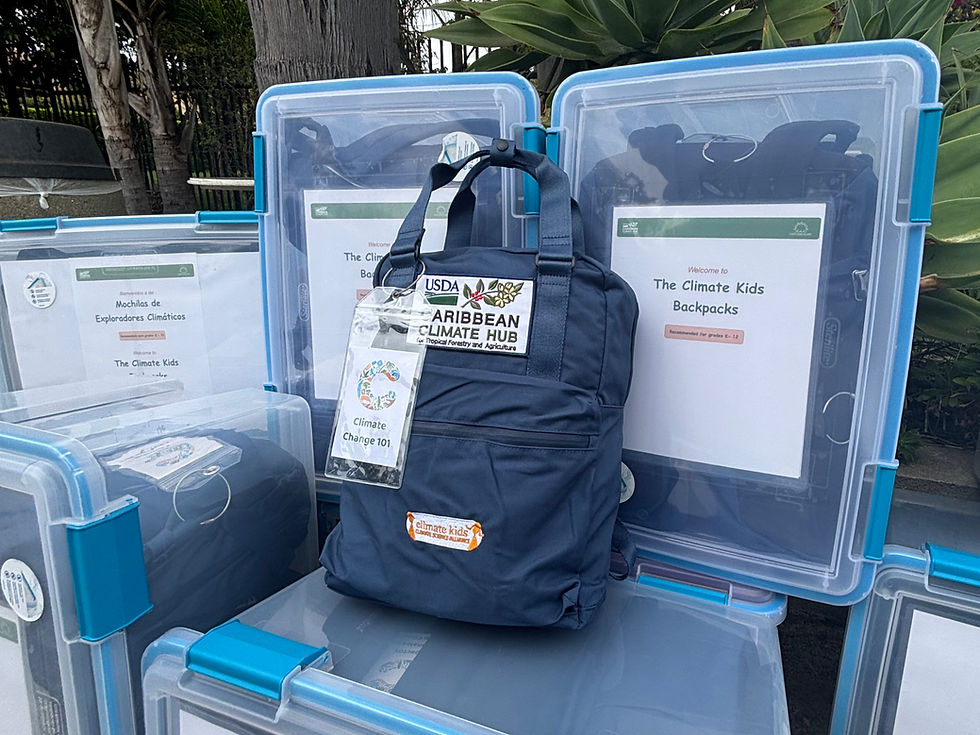Climate Kids Program Integrates Tribal Perspectives
- Mar 27, 2019
- 2 min read
Climate change impacts Tribal communities in a variety of different ways — check out some of the new tools our Climate Kids program has created to ensure that Tribal perspectives are represented in our educational offerings.

Climate change impacts Tribal communities in a variety of different ways including drought, water availability, and heat events which affect food security, public health, and natural resources with social, cultural, and biological significance. Tribal members and Tribal environmental professionals working with the Climate Science Alliance expressed the need for science-based education and outreach to increase community engagement on these issues. In response, the Alliance partnered with the Pala Band of Mission Indians to launch the Climate Kids Tribal youth engagement program in early 2016. Climate Kids - Tribes is a collaborative partnership with local Tribal Nations across the Southwestern United States.
We are excited to announce the expansion of this program! This year, with help from our Tribal Working Group and Tribal educational partners, we have worked to incorporate Tribal educational resources into each of our traveling trunks - oceans, carnivores, and pollinators.

As this knowledge set is ever growing and changing, we have also compiled and included a Tribal Climate Education Repository. The Tribal Climate Education Repository is a living collection of resources and materials for Tribal and Non-Tribal Educators that is being updated as additional materials are submitted. Climate-focused materials, activities, and resources from Tribes throughout the Southwest and beyond can be located here.
As with climate adaptation and resilience, we are strongest when we work together and learn from one another. If you would like to contribute to this growing body of knowledge, please feel free to do so here.

Lastly, we are excited to continue increasing access to our materials. In partnership with the Pala Band of Mission Indians and the Pala Environmental Department, we have created a set of traveling trunks specifically for Tribal educators that will be housed at Pala but available to Tribes across the region.
For more information on the Climate Kids program or how to reserve a trunk, please visit: www.climatekids.org
Programs and materials included in these Climate Kids Traveling Trunks were made possible through the support of our partners, including the California Coastal Commission and the Whale Tail Grant. Thank you!






Comments